Instant film cameras are on the rise. While Fujifilm has been the largest force in this realm of old-school photography, we’ve seen a few new models jump into the fray this year including the Impossible Project I-1 and Leica Sofort. Now Lomography has introduced the Lomo’Instant Automat and it’s arguably the most advanced instant film camera we’ve seen so far.
We got a chance take a look at a pre-production prototype of the camera for a few moments and we came away quite pleased with the new instant film shooter.
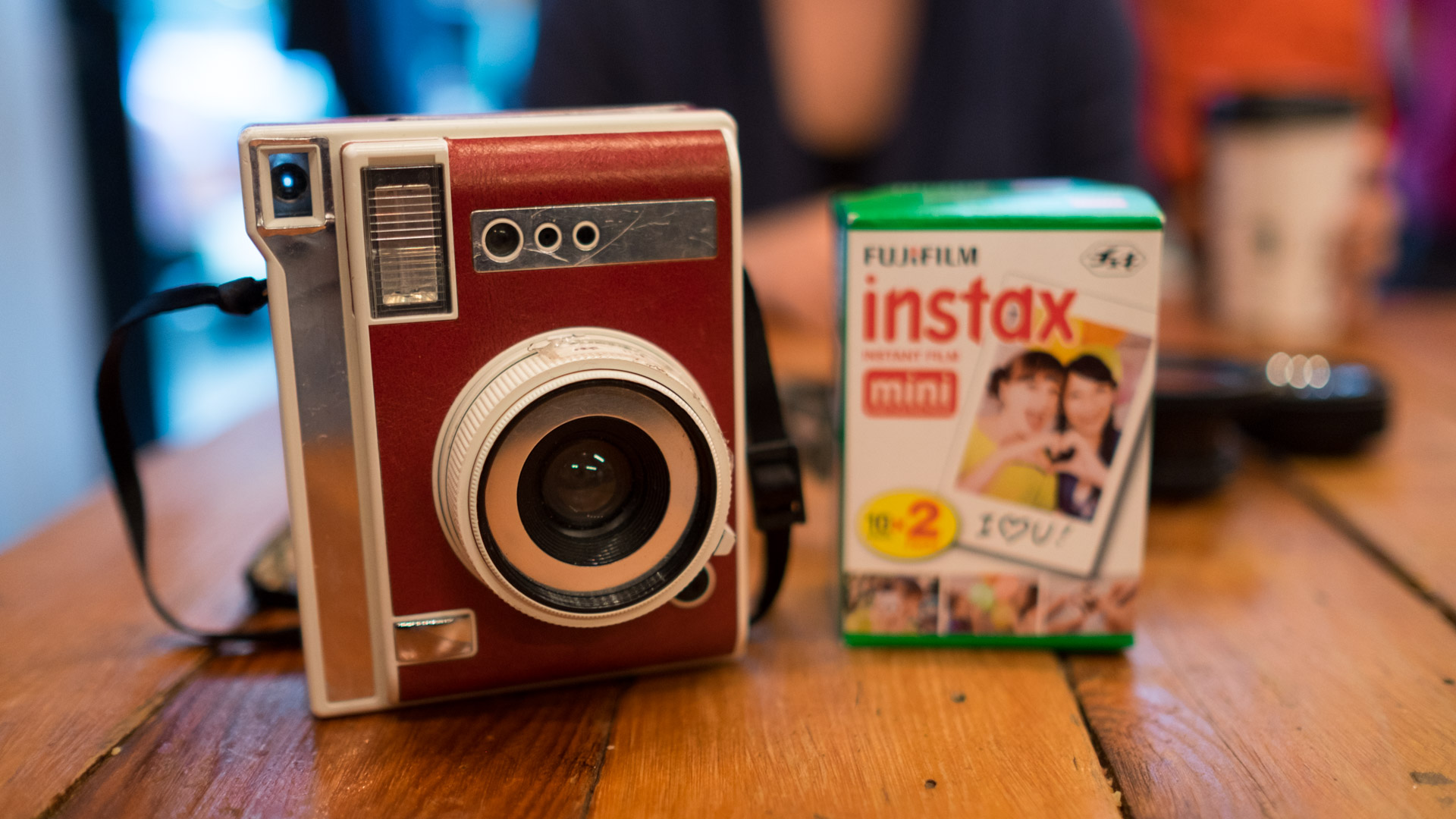
The Lomo’Instant Automat bears a strong resemblance to the Fujifilm Instax 90 (and it uses the same Fujifilm Instax Mini film), but we have to say Lomography’s instant film camera looks a bit more sophisticated. The Automat features a leatherette skin that most of the camera’s white plastic body and squarer angles all around. Put together, it feels like a more classic film camera among its rounded edge contemporaries.
Beyond looks, Lomography is touting the Automat as the most advanced automatic instant film camera on the market. Since the company’s first Lomo Instant film camera, Lomography has developed an metering system that automatically sets your exposure for the right aperture, shutter speed, and flash depending on the lighting situation.
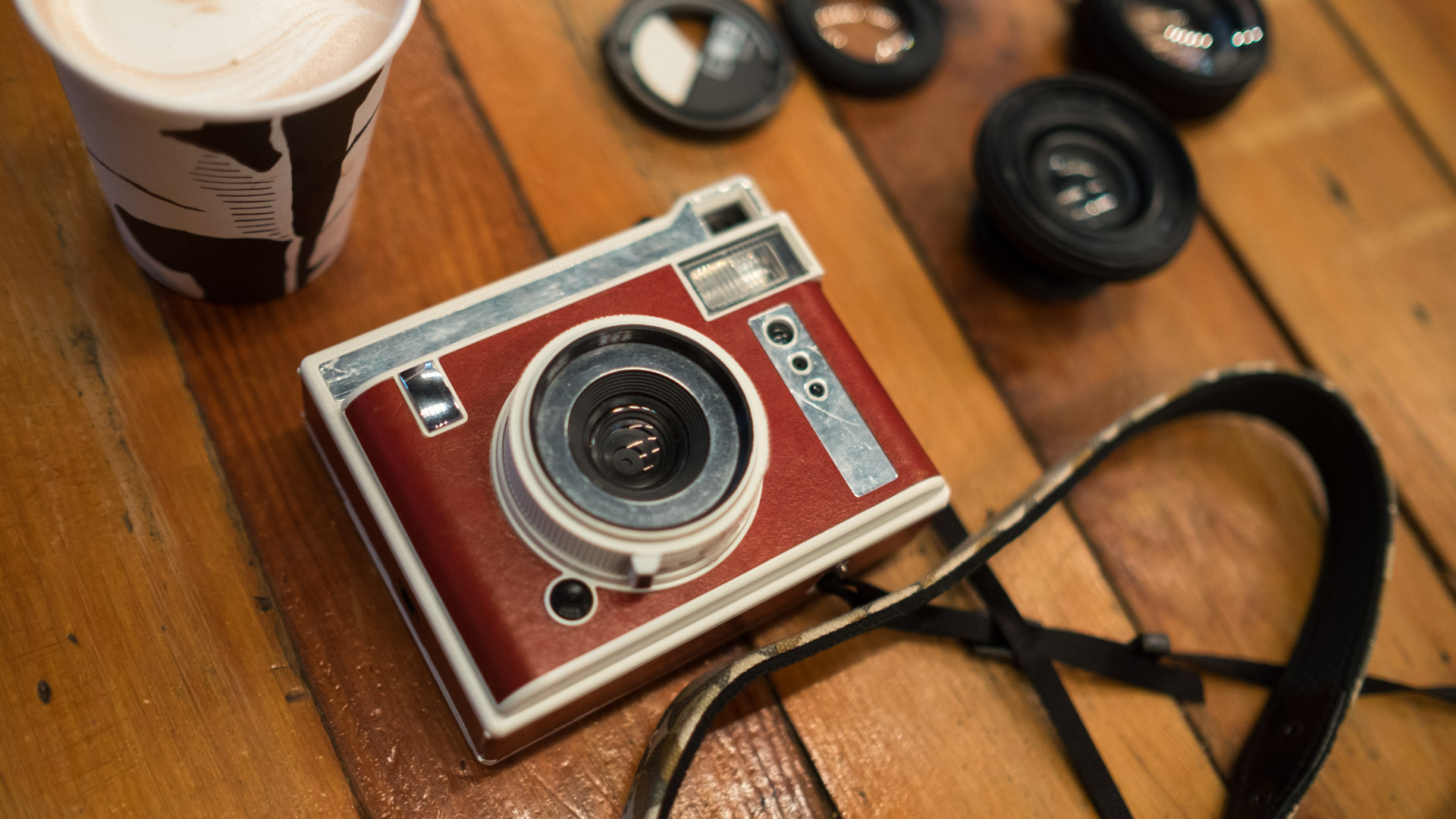
Additionally, Lomography is putting more control into users’ hands with a toggle for the flash and a new bulb mode for long exposures up to 30 seconds. The Automat also allows you to shoot an unlimited number of exposures on the same piece of film – a unique feature you won’t find on any other Instant film camera.
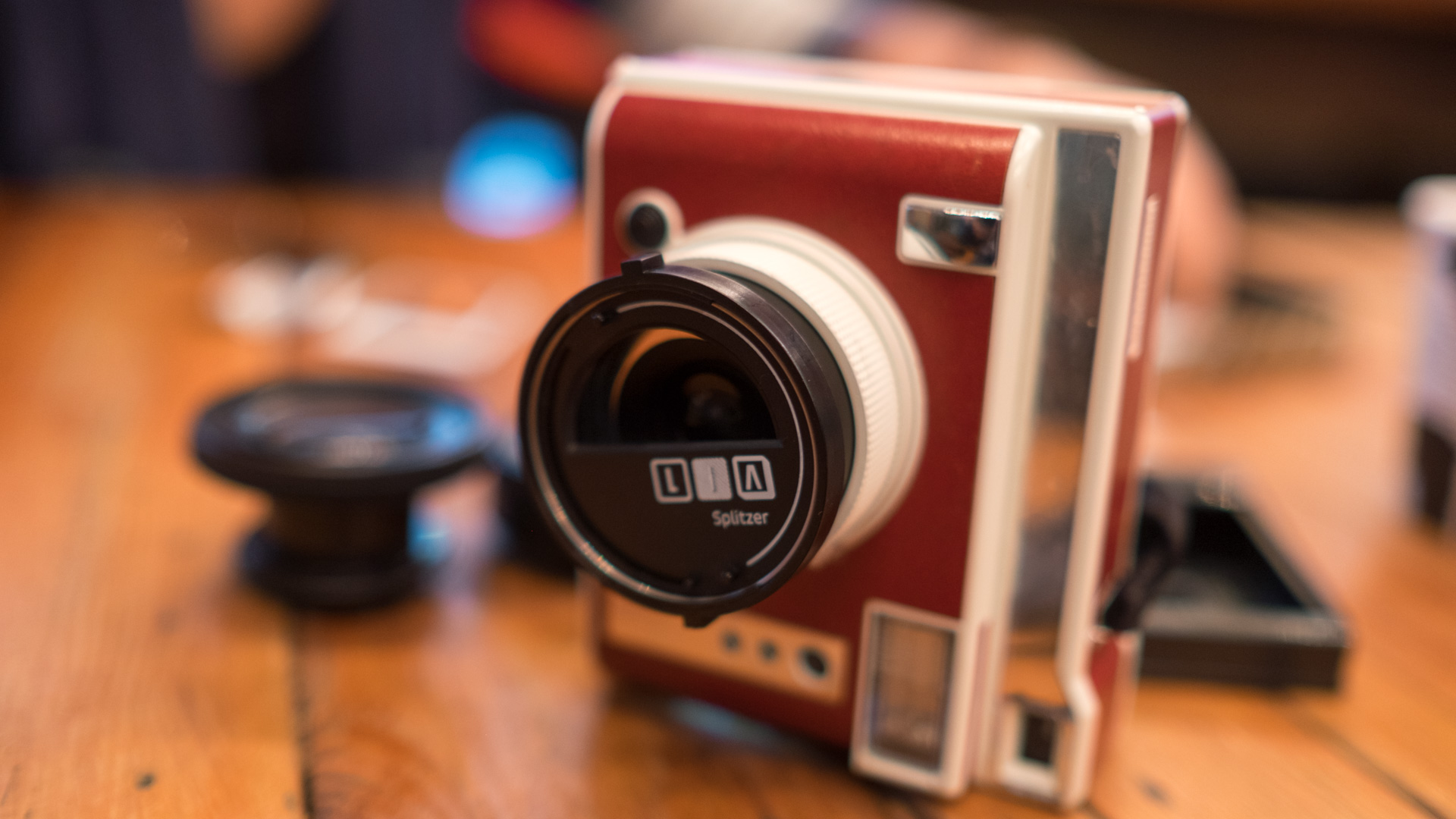
As for optics, the camera comes with a fixed 35mm lens lets you focus as closely as 0.6m – though you’ll have to do so manually. Of course there is a series of lens attachments including a wide-angle convertor, fish-eye attachment, half-frame cover for double exposures and a macro lens that will allow the camera to focus as close as 10cm.
In terms of operation, it’s fairly easy to get started with shooting. To turn on the camera, you’ll have to hold down the small black button on the front of the camera where you would expect the lens release and turn the lens. From there you’ll have to manually find focus with zone focusing, give the silver shutter button also on the front a squeeze and wait for the film to roll out of the top of the camera.
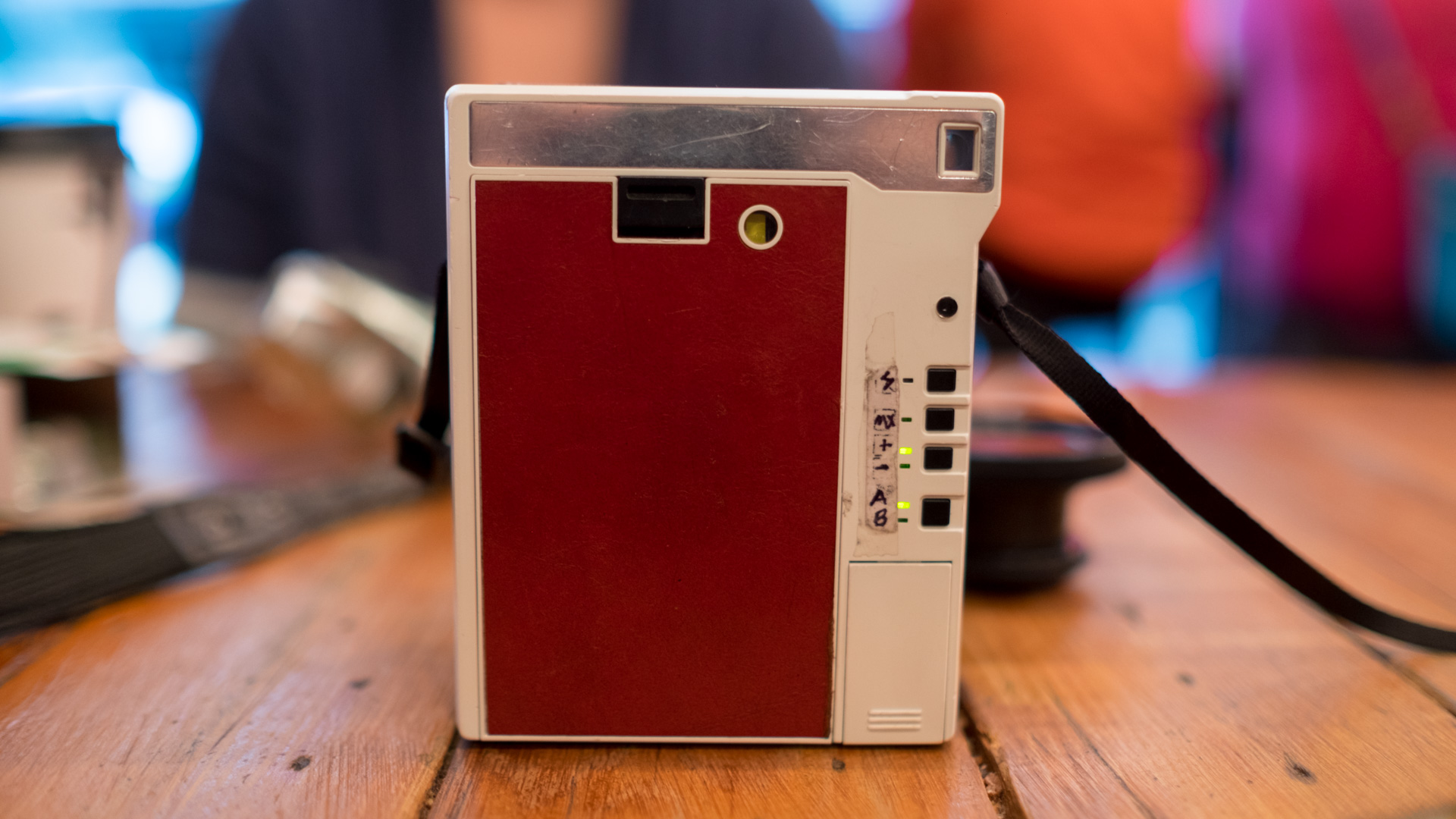
If you want to get a little more in depth with the controls, there’s a series of four controls on the back of the camera. From left to right the first button switches flash modes, the dual-set of buttons dictate stops of exposure compensation and last is the unlimited exposure mode toggle.
While there’s a fairly generous spread of controls, you won’t get much feedback on whether or not the shot is properly setup. Focusing is entirely manual without any lights to indicate whether or not you nailed it. The only available aid is an optical viewfinder located at the corner of the camera for framing the shot.
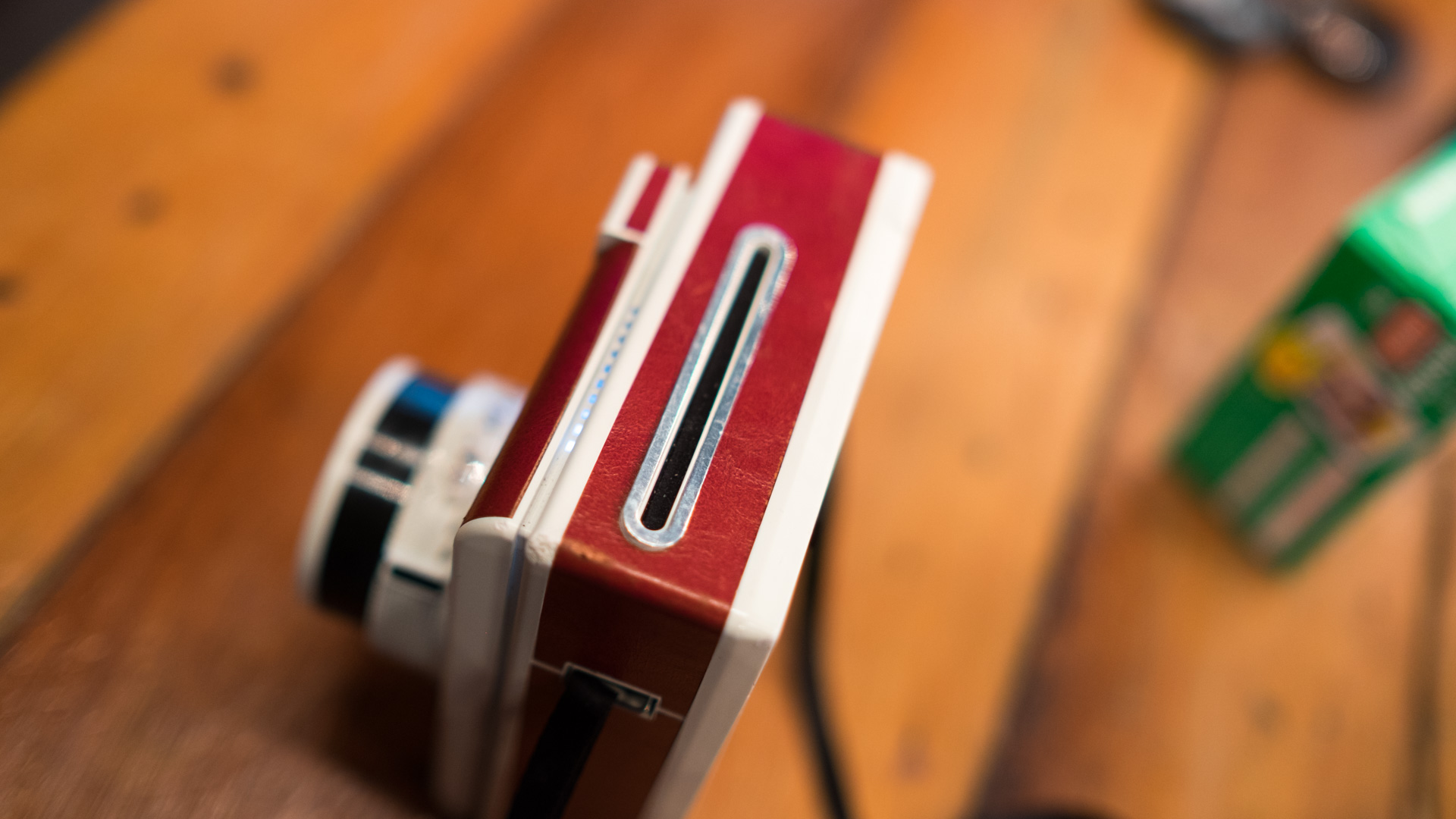
Thankfully, Lomography integrated a small lighting strip displaying how many frames are left your instant film cartridge.
These missing features are fairly common on instant film cameras and they’re purposely omitted to keep you in the moment. However, autofocus is available on other competing cameras like the Fujifilm Instax 90 and Impossible Project I-1.
During our hands on time with the camera we got to fire off a few frames and overall we’re happy with the pictures we got as well as the fun experimentation that comes with shooting film. The lens (and attachments) render sharp details with buttery bokeh. However, we’ll have to run this camera through a full battery of tests before we can call it a must buy.
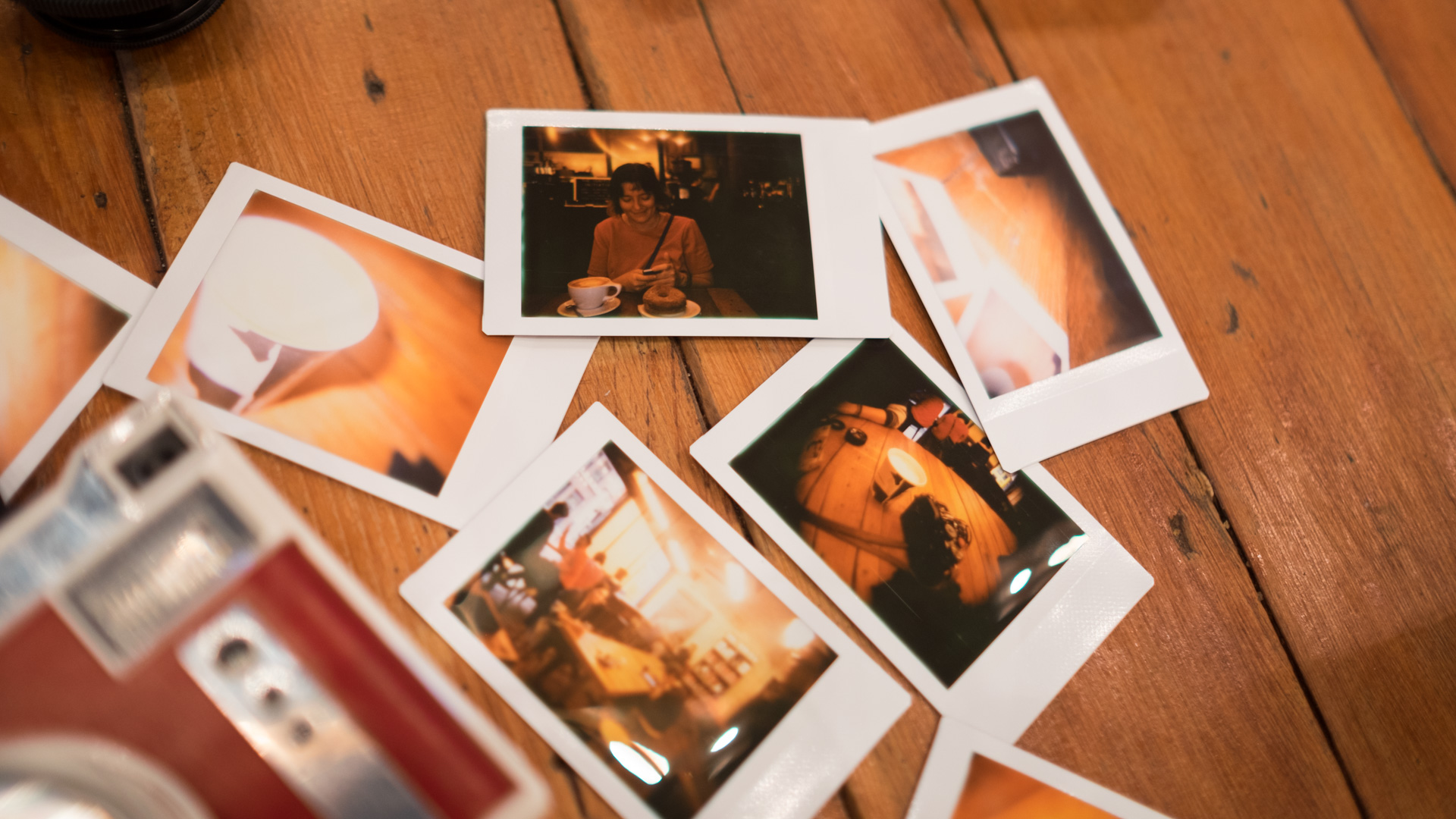
The Lomography Lomo’Instant Automat is currently finishing its Kickstarter campaign to launch this camera with pre-orders from backers. Releasing later this year or early 2017, the camera will retail for $ 149 (about £115, AU$ 195), however, early can still pick up it up for as little as $ 96 (about £75, AU$ 125) until October 5th.
- Here’s what we thought about the first Lomography Lomo’Instant